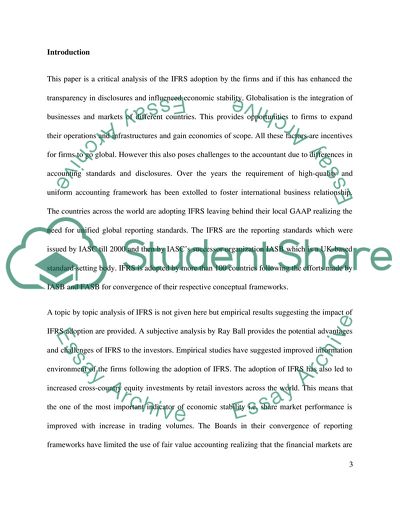Cite this document
(Critically assess how the use of IFRSs contributes to increased Essay, n.d.)
Critically assess how the use of IFRSs contributes to increased Essay. https://studentshare.org/finance-accounting/1761545-critically-assess-how-the-use-of-ifrss-contributes-to-increased-transparency-for-stakeholders-and-the-extent-to-which-ifrss-can-influence-economic-stability
Critically assess how the use of IFRSs contributes to increased Essay. https://studentshare.org/finance-accounting/1761545-critically-assess-how-the-use-of-ifrss-contributes-to-increased-transparency-for-stakeholders-and-the-extent-to-which-ifrss-can-influence-economic-stability
(Critically Assess How the Use of IFRSs Contributes to Increased Essay)
Critically Assess How the Use of IFRSs Contributes to Increased Essay. https://studentshare.org/finance-accounting/1761545-critically-assess-how-the-use-of-ifrss-contributes-to-increased-transparency-for-stakeholders-and-the-extent-to-which-ifrss-can-influence-economic-stability.
Critically Assess How the Use of IFRSs Contributes to Increased Essay. https://studentshare.org/finance-accounting/1761545-critically-assess-how-the-use-of-ifrss-contributes-to-increased-transparency-for-stakeholders-and-the-extent-to-which-ifrss-can-influence-economic-stability.
“Critically Assess How the Use of IFRSs Contributes to Increased Essay”. https://studentshare.org/finance-accounting/1761545-critically-assess-how-the-use-of-ifrss-contributes-to-increased-transparency-for-stakeholders-and-the-extent-to-which-ifrss-can-influence-economic-stability.


